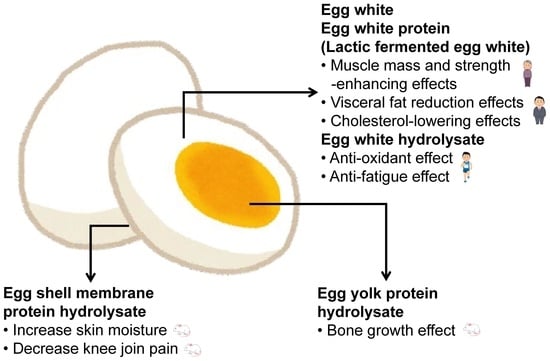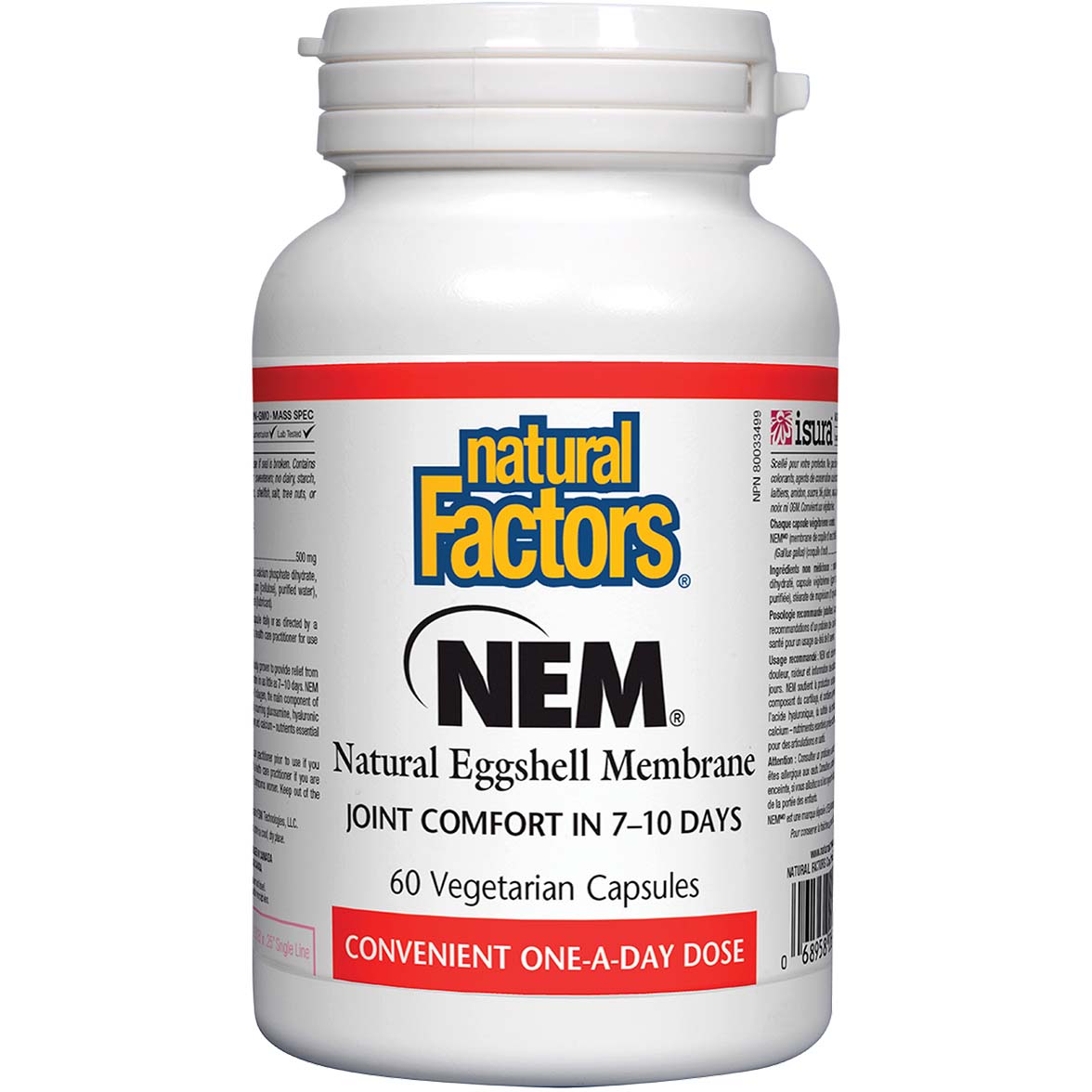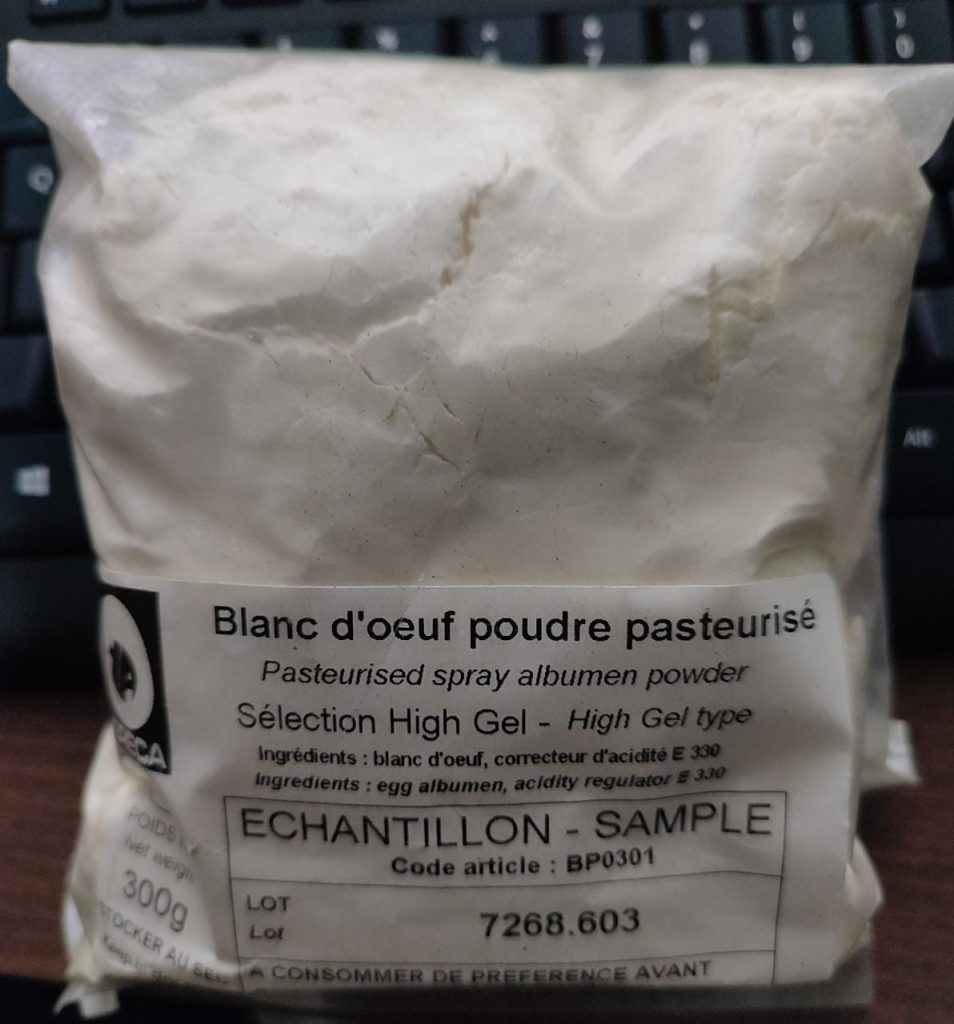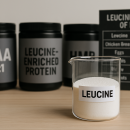I love industry trends and it is fascinating to observe how certain ingredients rise and fall in popularity over the years.
Observing ingredient and finished product trends also happens to be what I do for a living.
One such ingredient that experienced a shift in market share is egg white protein.
Once a mainstay in the protein powder business, egg protein faced serious competition from whey proteins with the latter’s arrival in the mid-90s.
As a result, egg proteins lost popularity. Only a handful of brands kept an egg protein in their range. Whey protein became the new king.
However, recent advancements in technology and a growing interest in alternative protein sources have sparked renewed attention toward egg protein.
In this article, we delve into the potential comeback of egg protein and explore the latest advancements in egg peptides.
The Rise and Fall of Egg White Protein
Egg white protein is known for its excellent amino acid profile and high biological value.
It was once a sought-after choice among bodybuilders, fitness enthusiasts, and athletes.
The popularity of egg protein stemmed from its complete amino acid profile, easy digestibility, and potential for promoting muscle growth and recovery.
Egg proteins were offered as pure egg white proteins as well as Milk & Egg Proteins which were highly popular in the 90s.
Milk and Egg Proteins, a product that I got the opportunity to use, combined the benefits of both egg and milk proteins, typically blending dried egg white powder with milk protein isolates or concentrates, providing a balanced amino acid profile and providing a steady supply of amino acids for muscle recovery and growth over an extended period.

Egg Beaters, a popular egg white powder in the 90s, was endorsed by Mr. Olympia Dorian Yates.

Weider’s Egg White Protein powder was offered as a flavoured option.

Milk & Egg Protein from French brand High Tech Nutrition combined egg white protein with total milk protein isolates (that supplied whey and casein).

Egg protein was a cornerstone of high protein formulations in the 80s. The high protein content of egg white powders allowed the development of products boasting as much as 90% protein.

Another example of a Milk & Egg protein from Musclemag. Musclemag, founded by famed writer late Robert Kennedy had a decent line of supplements.
However, in the 90s, whey protein emerged as the front-runner in the supplement market, overshadowing the popularity of egg protein.
Factors contributing to this shift included whey protein’s wider availability, lower cost, a very powerful dairy industry backing it, and strong marketing campaigns promoting its benefits.
New-generation egg proteins
It is worth noting that the formulations and availability of egg protein products have evolved, with new advancements in technology, processing methods, and ingredient combinations.
This ongoing progress highlights the dynamic nature of the supplement industry and the potential for renewed interest in egg protein products in the present day.

Healthy N Fit, the iconic American brand is one of the brands that consistently carried an egg protein in their line for as long as I can remember. In South Africa, the brand EVOX consistently maintained an Egg Protein powder in their line. Disclaimer: no affiliation with both brands.
While egg white protein experienced a decline in market share compared to whey protein in the past, recent trends suggest that it may be on the verge of a comeback.
Factors such as dairy allergen sensitivity, lactose intolerance, the popularity of dairy-free diets, and the appeal of the diverse amino acid profile of eggs have contributed to the renewed interest in egg protein.
New Gen Egg Proteins: Egg Protein hydrolysates (peptides)
Scientists and researchers have made significant strides in exploring and harnessing the potential of egg peptides.
Peptides are short chains of amino acids that are obtained when egg proteins are subjected to hydrolysis (digestion). This takes place during the manufacturing process.
Peptides offer specific biological activities and health benefits, like antioxidant, antimicrobial, antihypertensive, and immune-enhancing effects.
Ongoing research aims to unveil the full spectrum of bioactivities and unlock the potential therapeutic applications of these peptides.

The potential health benefits of various egg-derived protein hydrolysates are based on research findings from human and animal studies. Source: Matsuoka, R. and Sugano, M. (2022). Health Functions of Egg Protein. Foods, [online] 11(15), p.2309.
a. From egg white protein
Egg white contains several proteins like ovalbumin, ovoglobulin, and ovomucin.
These can be hydrolysed (pre-digested) to produce the peptides.
For example, ovokinin-1 (a peptide from ovalbumin) has been found to exhibit antihypertensive effects by inhibiting an enzyme involved in regulating blood pressure.
Ovomucin is another prominent protein in egg whites. It can be enzymatically digested to produce peptides with various bioactivities.
For instance, ovomucin-derived peptides have exhibited antimicrobial properties, inhibiting the growth of certain pathogenic bacteria such as Escherichia coli and Staphylococcus aureus
b. From egg yolks
Egg yolk protein hydrolysate can promote bone growth as shown in animal studies. More research is needed in the area of egg yolk protein hydrolysate.
Egg yolks can also be a source of other bioactive compounds. An example is Fortetropin®, a protein-lipid bioactive compound that is made from non-thermal pasteurized fertilized egg yolk.
Fortetropin® is being tested for its effects on muscle hypertrophy and prevention of muscle breakdown in older individuals. Needless to say, I will be watching the research in this area closely.
c. From eggshells and eggshell membranes
The eggshell membrane is a thin, transparent film located between the eggshell and the egg white.
It is a natural bioresource that has gained attention for its potential health benefits and various applications as it is composed of fibrous proteins such as collagen, elastin, and glycosaminoglycans.
The above components contribute to the structural integrity and flexibility of the membrane. The membrane also contains other bioactive compounds like hyaluronic acid, chondroitin sulfate, and various peptides.
Due to its composition, the eggshell membrane has been studied for its potential therapeutic properties, including anti-inflammatory, antioxidant, and wound-healing effects.
It is often used in the development of dietary supplements, nutraceuticals, and topical products for joint health, skin health, and overall well-being.
In the context of joint health, the eggshell membrane has been explored for its potential to alleviate joint pain, improve joint flexibility, and support cartilage health.
Some studies suggest that the bioactive components in the eggshell membrane may help modulate inflammation and promote the synthesis of collagen and other extracellular matrix components in the joints.
In the field of skincare, eggshell membrane is used in cosmetic formulations due to its potential to improve skin hydration, reduce wrinkles, and enhance overall skin appearance.
The presence of collagen, elastin, and hyaluronic acid in the membrane contributes to its moisturizing and anti-aging properties.

A product containing eggshell membrane. The active ingredient is a branded ingredient called NEM which is a partially hydrolysed eggshell membrane. The product is promoted for joint support. Disclosure: No affiliation with the brand
Yes, but how about Egg Protein Powders?
Egg white powders have the potential to make a comeback in the supplement market based on insights based on current trends.
The shift in consumer preferences towards lower allergen sensitivity may create opportunities for egg white powders to regain popularity.
Egg white powders are naturally lactose-free and hypoallergenic, making them suitable for individuals with lactose intolerance or dairy allergies. With the rising prevalence of food allergies and sensitivities, egg white powders can serve as an alternative protein source for those seeking alternatives to dairy-based proteins like whey.
Egg protein also happens to be low-carb and low-fat, making it an attractive option for products focused on lean proteins.

Furthermore, advancements in processing technology have improved the quality and taste of egg white powders, addressing some of the challenges they faced in the past like the “eggy” smell, excessive foaming, and poor solubility, thus increasing the overall appeal of egg white powders.
I have tested various egg white protein powders in the lab and have been impressed with their performance. For instance, I have tested an egg white powder from the French manufacturer Igreca and really appreciated their quality.

It must be mentioned that increasing awareness of the environmental impact of the food industry has led to a demand for sustainable protein sources. Eggs, when produced through responsible farming practices, can be considered a more sustainable choice compared to some other protein sources. This aspect may resonate with environmentally conscious consumers, creating opportunities for egg white powders.

However, it is worth noting that many are seeing the promise of egg proteins.
For example, Symrise AG, known for its expertise in natural flavors (I formulate with their flavours), has acquired several egg powder companies globally. It will be interesting to see what interesting egg protein products they come up with, given their expertise in flavouring.
Concluding thoughts
As the industry continues to delve into the renaissance of egg proteins, it will be exciting to witness the advancements in technology, research, and product offerings that unfold. With careful formulation and scientific rigor, egg proteins may once again take center stage in the world of nutrition and supplementation.
As a product developer, I am intrigued by the promise of egg proteins and committed to exploring their applications and integrating them into upcoming formulations.
Disclaimer: I am not affiliated with any of the companies mentioned in this article and I have not received any remuneration for writing this article. The information provided is based on my research and personal experience as a product development scientist, using the products of some of the companies mentioned in this article. I am sharing my insights to provide informative content to readers. Any views and opinions expressed in this article are solely my own and do not reflect the views or opinions of the companies mentioned in this article or any other organisation.

To view my Professional Profile on LinkedIn: please click here
To see my latest product creations: www.bioteenhealth.com
To view my Scientific Publications on PubMed: please click here
To get in touch, please write to: info@supplementscientist.com
Follow supplementscientist.com on Facebook: please click here
Medical disclaimer
The information presented on this website is intended for adults 18 or over. Its aim is purely educational and does not constitute medical advice. Please consult a medical or health professional before you begin any program related to exercise, nutrition, or supplementation especially if you have a medical condition. If you consume any product mentioned on our site, you do so of your own free will, and you knowingly and voluntarily accept the risks. © 2023. Supplementscientist.com







Leave a Reply